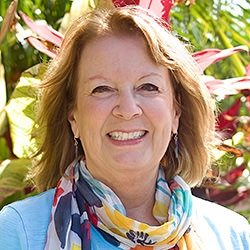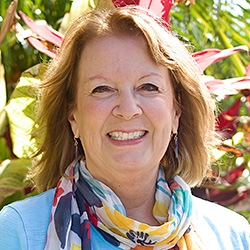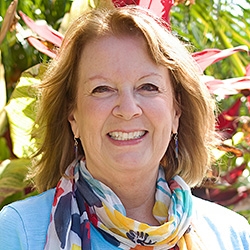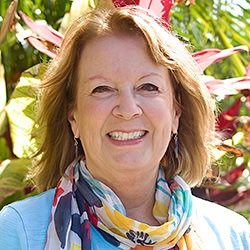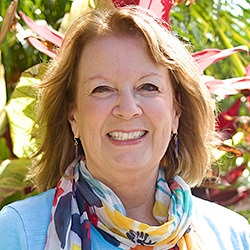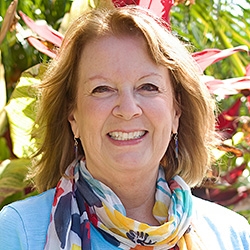
Search Results: war
-
Trainer Tip: We have four choices of how to respond to someone, even when they say things that are hard to hear. We can blame the speaker, blame ourselves, we can self empathize by acknowledging our feelings and needs, or we can empathize with the other person's feelings and needs. Be aware of these options and consciously make your choice based on the needs you want to meet.
-
Come. Let us journey together into our own authentic Life force: the essential living energy that permeates all of our lives.
Your journey will begin at the center: with the divine / life force, or soul force.
Robert Gonzales shares how this fundamental life energy is the tender expression of your inner being, or soul. It unfolds through the heart as your deepest longings, which manifest themselves in all forms of human needs and values. When you live from the energies of compassion, creativity, love, and clarity – while remaining wholly grounded and aware of needs and values – then you are living your passion… You are living the Self-In-Life.
-

In this 6-session course Sarah Peyton will take you through the 5 levels of unconscious contracts that can create patterns of self-sabotage and self-defeat. Each session introduces a different unconscious contract based on various aspects of relational neuroscience and provides support for the release of these contracts.
Sarah Peyton shows you how, with deep empathy, self-accompaniment, and an understanding of neuroscience, you can free yourself from your original constraints.
It can be bewildering to be human.
We can make so many choices that are not good for us. Why do we persist in habits, incapacities or self-judgments that are harmful to our long-term well-being?
The answer to this question is surprising – it is usually either love – or - paradoxically, survival!
Love is at the root of self-sabotage.
Though we often aren't aware of it, our nervous systems are essentially still paired with our earliest caregivers and often related to how we responded as a child. Our first interactions shape us in ways that can limit our life energy.
-
-
Ask the Trainer: "I've been feeling frustrated and angry quite a bit lately over very simple things. Can you help me get to the root of my hidden needs?"
-
Join CNVC Certified Trainer Arnina Kashtan as she explores enemy images to increase your capacity to embrace life more fully. Free yourself from the “us-them” paradigm and experience true compassion for the people whose actions most trouble you.
-
Trainer Tip: Anger is a prominent call to gain our attention. Mary explains why it's worth heeding that call.
-
We can see anger as an alarm or signal that can inform us that unmet needs require attention, or that we hold judgements. We can shift our own anger in several healthy ways: get present, identify the stimulus and any judgements or unmet needs, look for ways to meet our needs, make requests that support our needs, express our needs to ourselves and appropriate others, and more.
-
Healthy differentiation is key to personal growth, learning and thriving relationships. When healthy differentiation is present, you can discern what's true for you and what you are and aren't responsible for in an interaction, and can be fully who you are in the presence of others. There are a number of ways you can become aware of and cultivate healthy differentiation. Let’s look at two here: self-connection and autonomy.
-
Ask the Trainer: "Could you explore why people 'talk too much' and how I could connect with them and myself empathically when I'm also talking too much?"
-
Mindfulness is paying attention in a balanced and nonjudgmental way. To practice mindfulness is to uncover our own biases, revealing we less neutral and objective than we think. This takes great humility. Each time we become aware of our own unconscious biases and blind spots, our world expands. Read on for more about practices to help us see, and transform, our own biases.
-
The way we talk to one another, and think about or react to our lives, may seem "normal" but eventually, this may reach a point where we realize something isn't working, and we make adjustments. But often the suffering continues if we aren't addressing root causes. In studying NVC we can become more aware of what we are doing and its effects -- plus imagine and implement alternatives that lead to greater fulfillment for self and others.
-
Trainer Tip: Even if we don't agree, acknowledging others' realities can help demonstrate that we're including their feelings and needs in the conversation. Creating space for your reality and theirs can also bring a sense of connection, understanding, inclusion, abundance and fullness in life. Try it today. Read on for an example.
-
Recently, I have been pondering anger, how I express it and the jackal story I tell myself about it. Marshall Rosenberg taught that anger is a natural emotion that is based on a judgment of someone else or myself. I agree with this, so I have been doing some “enemy images” and self-empathy work (and praying for those who are most likely to be the recipients of my anger). My goal was to clear my judgments and take responsibility for my “stuff.” It has helped a lot, and yet I still feel a general anger in me that is not directly related to anyone or any specific situation.
-
I ended last month’s Growing Roots letter with a question to you: “Do you remember that you are a gift?” I hope you had moments throughout July that reminded you of this! I am still thinking about it, actually.
-
Trainer Tip: Practicing NVC in situations that are not emotionally charged can give you valuable practice to help you maintain a compassionate consciousness when circumstances are charged. It can help you stay in that consciousness for a longer period of time. You can also practice by naming the needs that you got met in the situations you enjoy.
-
- Inquire into your celebrations and mournings in four important categories of your life – body, heart, mind, and spirit – and "take stock" of how satisfied you are in these areas
- Assess your current and past relationships to life, with an eye to leaning into intention setting for the next short (30 days) and midterm (6 months to 1 year) periods of time
- Give and capture empathy for your future self, the self that revisits your intentions in 30, 180, and 360 days (this provides companionship for your future self)
-
We can choose our stories of interpretation, and how to respond. And while stories of self-sufficiency can (to a degree) give us more influence over our own lives, they don't erase oppression, war, nor climate change. When stories omit a lens that includes impacts of interdependence, oppression, and structural inequities, stories can also keep us disconnected and blocked from compassion for self and others -- and perpetuating an oppressive status quo. However, with this lens we can make greater compassion and collective liberation possible. Even as the outcome is unknown.
-
Learn how Nonviolent Communication (NVC) can improve the quality of your personal and professional relationships, one interaction at a time.

